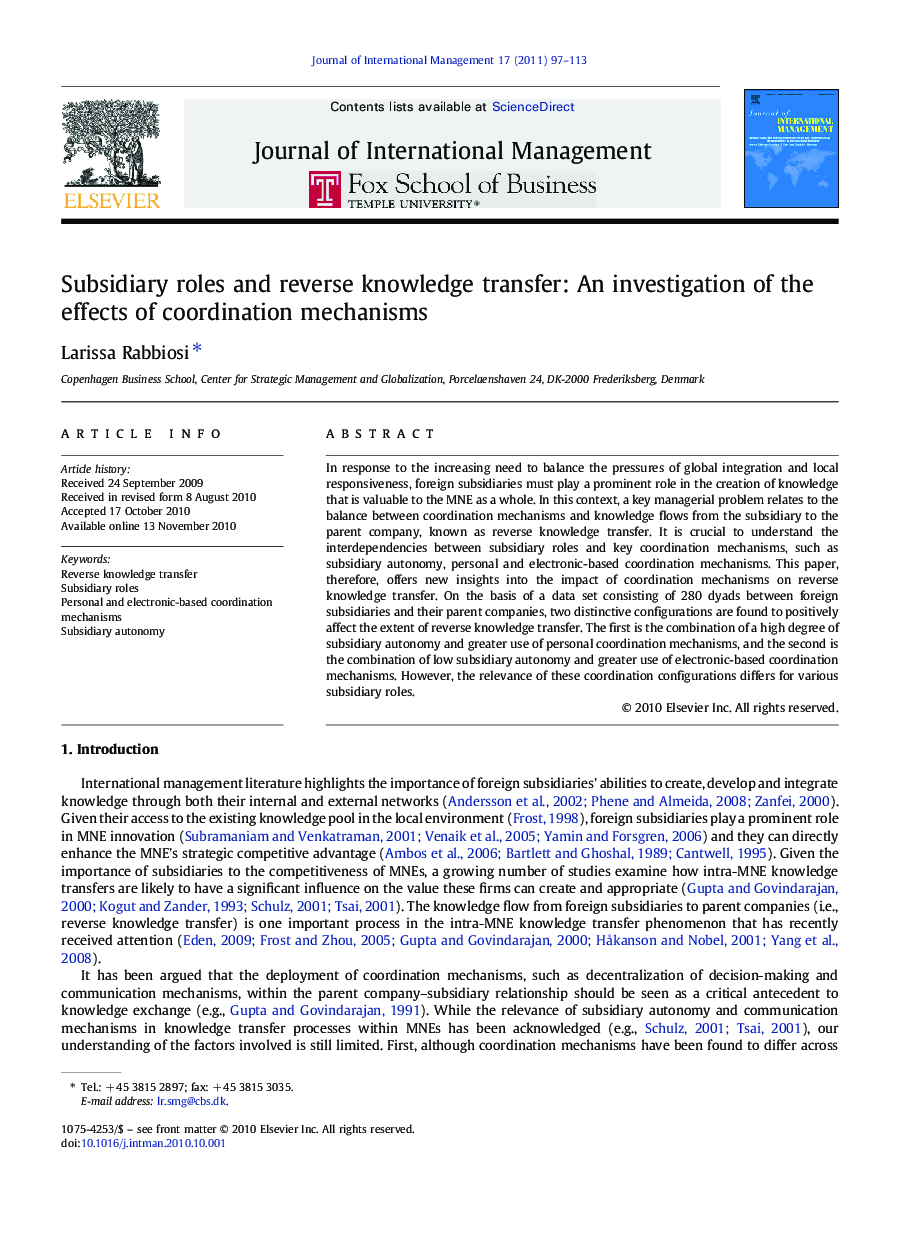| کد مقاله | کد نشریه | سال انتشار | مقاله انگلیسی | نسخه تمام متن |
|---|---|---|---|---|
| 1020371 | 940868 | 2011 | 17 صفحه PDF | دانلود رایگان |

In response to the increasing need to balance the pressures of global integration and local responsiveness, foreign subsidiaries must play a prominent role in the creation of knowledge that is valuable to the MNE as a whole. In this context, a key managerial problem relates to the balance between coordination mechanisms and knowledge flows from the subsidiary to the parent company, known as reverse knowledge transfer. It is crucial to understand the interdependencies between subsidiary roles and key coordination mechanisms, such as subsidiary autonomy, personal and electronic-based coordination mechanisms. This paper, therefore, offers new insights into the impact of coordination mechanisms on reverse knowledge transfer. On the basis of a data set consisting of 280 dyads between foreign subsidiaries and their parent companies, two distinctive configurations are found to positively affect the extent of reverse knowledge transfer. The first is the combination of a high degree of subsidiary autonomy and greater use of personal coordination mechanisms, and the second is the combination of low subsidiary autonomy and greater use of electronic-based coordination mechanisms. However, the relevance of these coordination configurations differs for various subsidiary roles.
Journal: Journal of International Management - Volume 17, Issue 2, June 2011, Pages 97–113